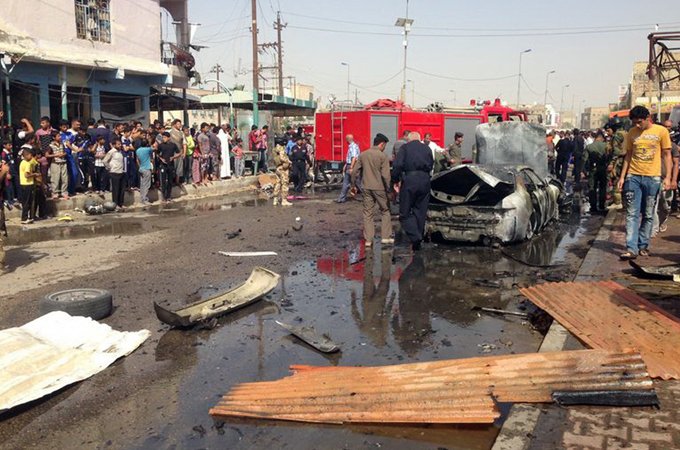by Darrin Simmons
Impunity Watch Reporter, Middle East
BEIRUT, Lebanon – Police arrested a follower of Sunni Musslim Sheikh Ahmed al-Assir at a security checkpoint twenty-eight miles south of Beirut on Sunday June 23rd. The arrest sparked attacks on the police by other followers of the Sheikh.
Reports say that at least ten Shi’ite soldiers were killed and forty wounded along with two Sunni gunmen being killed and thirteen wounded during the attack. Violence has erupted due to Syrian conflict pitting Sunni rebels against Shi’ite supporters of President Bashar al-Assad, straining sectarian relations in Lebanon.
Sunni Sheikh Ahmed al-Assir has been surrounded by controversy after rising to power due to his strong opposition to Hezbollah and its ally, President Bashar al-Assad. Sheikh Ahmed recently has called on his supporters to fire on apartments near his home mosque that he believes to be used for surveillance on him by Hezbollah.
During Sunday’s fight, the Sheikh released a video message saying, “[w]e are being attacked by the Lebanese army,” and accusing the Shi’ite military of being “sectarian” in support of Hezbollah. “I call on everyone. . .to cut off roads and to all honorable soldiers, Sunni and non-Sunni, to quit the army immediately,” continued the video message.
Following the security checkpoint clash and the Sheikh’s video message, Lebanon experienced severe outbursts of fighting throughout the regent. Blocked roads and small protests in support of the Shi’ite army popped up in the province of Metn, north of Beirut.
“They are heightened in other cities, most notably Tripoli, and roads are said to be blocked. There are also attempts to block certain roads in Beirut as well in support of Sheikh Assir,” said one reporter.
Bekaa Valley, home to a large Shi’ite population and Sunni supporters of the Syrian opposition experienced blocked roads and streets guarded by gunmen. Ain al-Hilweh, a Palestinian refugee camp near Sidon, suffered gunfire between Sunni radical groups and the Shi’ite army.
Shi’ite troops have been funneled to the various outbursts and the interior minister and other political leaders have been called on to take a stand. The army issued a statement claiming that they would not tolerate Sunni uprisings and that it will “strike back with an iron fist anyone who. . .spills the bold of the army.”
“In cold blood” became the unofficial motto of the Shi’ite army who continued to fight against the Sunni rebels. This tumultuous time in Lebanon has been equated to a fifteen year civil war in 1975, causing many to fear a repeat of history.
For more information, please see the following:
Al Bawaba – Lebanese army ramps up fight against radicals after Sidon deaths – 24 June 2013
Aljazeera – Violence spreads as troops killed in Lebanon – 24 June 2013
Sky News – Three Lebanese troops killed in clash– 24 June 2013
Reuters – Syria-linked clashes kill at least eight in Lebanon – 23 June 2013


